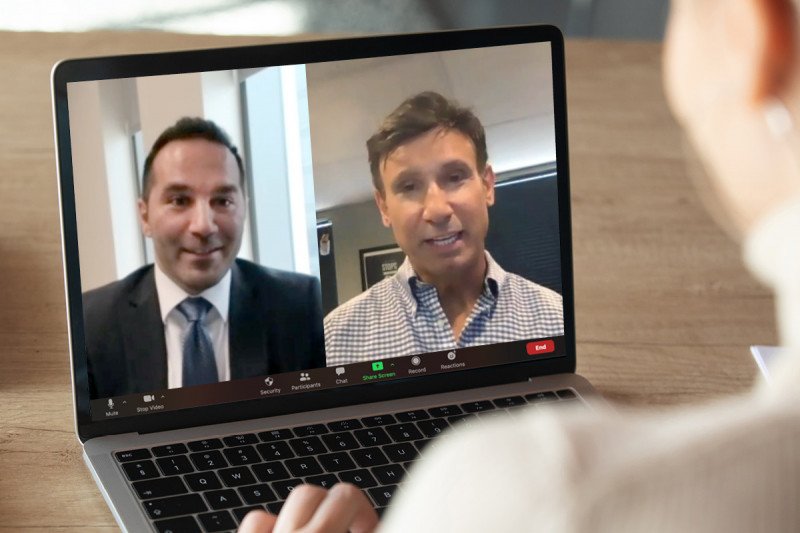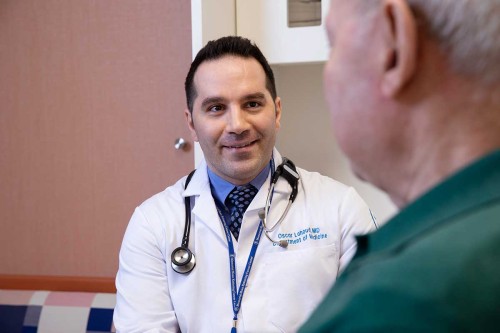
Medical oncologist Oscar Lahoud spoke via Zoom with former bone marrow transplant patient Dan Roeper as part of MSK’s online celebration for transplant “thrivers.”
“We all live in incredible times.” Those were the words of Sergio Giralt, a bone marrow transplant (BMT) expert at Memorial Sloan Kettering. On October 5, he opened MSK’s 25th annual celebration for transplant survivors by explaining that the rise of COVID-19 had prompted long discussions among MSK staff about whether the event should be held this year. “It was unanimous that having this event was important — that life goes on, that we will overcome this, as you’ve already overcome a lot.”
This year’s BMT Thrivers Celebration, for people welcoming their return to health after a transplant, was the first to be held remotely. A Zoom session enabled more than 200 patients scattered far and wide, along with family, friends, donors, and caregivers, to convene with doctors, nurses, and other staff from the Bone Marrow Transplant Service.
“Bone marrow transplant patients are the world experts at social distancing,” says Miguel-Angel Perales, who recently became Chief of the Bone Marrow Transplant Service. “They know what it is like to wear a mask and be careful.”
As part of the online program, two people who received transplants were interviewed by their doctors in prerecorded presentations. The patients recounted their difficult and tumultuous journeys while praising the high level of medical care and emotional support provided by their doctors, nurses, and support staff members.
Dan Roeper received a transplant for the treatment of primary central nervous system lymphoma in late 2017. He said medical oncologist Oscar Lahoud gave him much-needed reassurance on their first meeting. “You looked in my eyes and said, ‘It’s going to be okay. We can do this.’ I can’t say enough about how great you guys are at being human. You’re great scientists, great doctors, but your humanity — the way you treat a patient and you care for the inner person — is unbelievable.”
Berenice Martinez received a transplant at age 14 after a diagnosis of acute myeloid leukemia. She relapsed several years later and needed a second transplant, making her a “double-thriver” in the words of pediatric oncologist Susan Prockop. Dr. Prockop said Ms. Martinez inspired the entire medical team with her resolve and maturity.
Ms. Martinez, now a student at New York University, said that the devastation she felt upon her second diagnosis was eased a bit by knowing she was returning to the same doctors who had guided her through the entire journey since her first year in high school. “I knew a lot of the doctors and nurses there, how they took care of me, and how they would take care of me in the future to make me get better.”
Dr. Giralt noted that the celebration has grown so large over the years as more survivors return after successful treatment that an online component may become permanent. “We can’t even have everyone in one room anymore, but a hybrid virtual and in-person event will be great for all of us.”
At the end of the program, Dr. Giralt asked that everyone be briefly unmuted so that all participants could “scream, shout, and applaud” to encourage the current transplant patients in Memorial Hospital who were watching the event.
The event concluded with the opportunity for virtual attendees to split off into smaller Zoom breakout rooms to connect with fellow “thrivers” based on similar “thrivership anniversaries.” Participants were encouraged to share memories, recount what powered them through treatment, and give advice to caregivers supporting loved ones going through their own BMT process.




